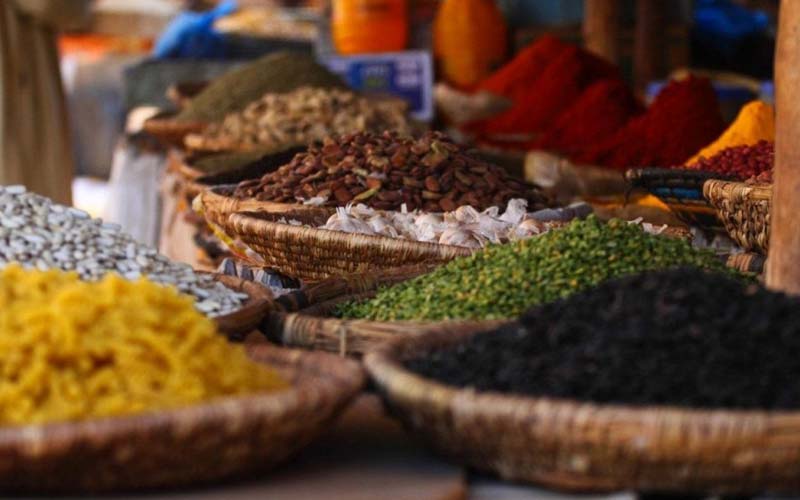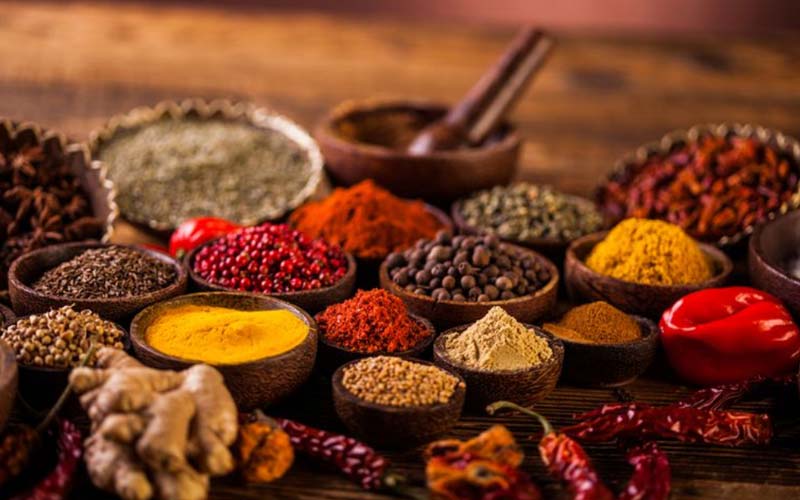Zanzibar, often referred to as the “Spice Island,” is renowned for its rich spice heritage. Situated off the coast of Tanzania in East Africa, this island archipelago has a long history deeply intertwined with the spice trade, which has significantly shaped its culture, economy, and culinary traditions. The island’s fertile soil and favorable climate have made it an ideal environment for growing a variety of spices, including cloves, nutmeg, cinnamon, and black pepper, among others. For centuries, Zanzibar has been a hub for spice cultivation and trade, attracting merchants from around the world and earning its reputation as a spice paradise.
The influence of the spice trade is evident throughout Zanzibar, from the vibrant markets overflowing with colorful spices to the aromatic dishes that grace the tables of its residents. Spices not only add flavor to the local cuisine but also play a central role in cultural practices and traditional medicine. Today, Zanzibar continues to be a major producer and exporter of spices, drawing visitors who are eager to explore its aromatic spice plantations and immerse themselves in its rich culinary heritage.
Zanzibar Spice Tour: Unveiling the Island’s Rich Spice Heritage
Historical Significance:
Zanzibar’s historical significance lies in its role as a hub for the spice trade, a legacy that stretches back through the annals of time. For centuries, the island has attracted merchants from diverse corners of the world, including Arab, Indian, Persian, and European traders, all drawn by the allure of its valuable spices. Cloves, nutmeg, cinnamon, black pepper, and a plethora of other aromatic treasures lured these seafaring traders to Zanzibar’s shores, transforming the island into a bustling epicenter of commerce and cultural exchange.
The spice trade not only fueled economic prosperity but also catalyzed the intermingling of cultures and ideas. Zanzibar became a melting pot of traditions, languages, and religions, shaped by the interactions between its indigenous population and the influx of traders from distant lands. This rich tapestry of influences continues to resonate in the island’s cultural fabric today, a testament to Zanzibar’s enduring significance as the “Spice Island” of the Indian Ocean.
Cultural Fusion:
The spice trade catalyzed a remarkable cultural fusion in Zanzibar, weaving together a tapestry of African, Arab, Indian, and European influences that shape the island’s identity to this day. This blending of diverse cultures is palpable in every facet of Zanzibari life, from its architecture adorned with intricate carvings and vibrant colors to the melodic cadence of its Swahili-infused language. The culinary landscape of Zanzibar mirrors this fusion, with dishes that marry local ingredients with spices from distant lands, creating a symphony of flavors that tantalize the taste buds.
Beyond architecture and cuisine, this cultural amalgamation is also reflected in Zanzibar’s customs and traditions. From the celebration of Swahili festivals to the observance of Islamic rituals, and the vibrant markets pulsating with energy and diversity, Zanzibar embodies the harmonious coexistence of different cultures. This unique blend of influences serves as a testament to the island’s rich history as a melting pot of civilizations, where the legacy of the spice trade continues to permeate every aspect of daily life.
Spice Plantations:
Today, Zanzibar beckons visitors to embark on a sensory journey through its lush spice plantations, scattered like fragrant gems across the island. Guided tours provide an immersive experience, inviting guests to engage with the sights, scents, and flavors of various spices thriving in their natural habitat. From the heady aroma of cloves to the warm embrace of cinnamon, visitors are treated to a multi-sensory exploration of the island’s rich spice heritage.
These captivating tours typically include hands-on demonstrations, offering insights into the intricate process of spice cultivation, harvesting, and processing. Visitors have the opportunity to witness firsthand the skilled labor involved in nurturing these precious crops and learn about their significance in local culture and cuisine. By delving into the heart of Zanzibar’s spice plantations, guests not only gain a deeper appreciation for the island’s natural bounty but also forge a lasting connection to its vibrant history and traditions.
Key Spices:
At the forefront of Zanzibar’s spice legacy stands the illustrious clove, a symbol of the island’s historical prominence in the spice trade. Once hailed as the world’s foremost producer of cloves, Zanzibar continues to hold this fragrant spice close to its heart, cherishing its role in shaping the island’s identity and economy. Beyond cloves, Zanzibar boasts a treasure trove of other key spices that have left an indelible mark on its culinary tapestry and cultural heritage.
Among these prized spices are cinnamon, renowned for its warm and aromatic flavor, and nutmeg, prized for its distinctively rich and pungent taste. Cardamom adds a delightful hint of citrus and spice to both sweet and savory dishes, while vanilla lends its enchanting fragrance to desserts and beverages. Together, these key spices form the cornerstone of Zanzibar’s spice heritage, a testament to the island’s enduring legacy as the “Spice Island” of the Indian Ocean.
Culinary Traditions:
Zanzibari cuisine stands as a vibrant testament to the island’s rich spice heritage, where every dish is a symphony of flavor and aroma, crafted from a harmonious blend of exotic spices. From the fragrant depths of pilau rice to the savory complexities of biryani, Zanzibari culinary traditions captivate the senses and tantalize the palate with their bold and aromatic character.
Among the culinary delights that grace Zanzibar’s tables are street food sensations like the Zanzibar mix, a tantalizing medley of fried snacks bursting with flavor and texture. Seafood takes center stage in many Zanzibari dishes, with spiced preparations that showcase the island’s bounty from the surrounding waters. Whether indulging in a hearty meal or savoring a casual street food snack, visitors to Zanzibar are treated to an unforgettable culinary journey steeped in the island’s vibrant spice heritage.
Economic Impact:
While tourism has emerged as a significant pillar of Zanzibar’s economy, the island’s spice industry maintains its pivotal role, serving as a vital source of income and livelihood for many residents. The cultivation and export of spices continue to thrive, contributing to the island’s economic resilience and cultural legacy.
Spice cultivation not only sustains local communities but also fosters a sense of pride in Zanzibar’s rich agricultural heritage. The spices harvested from the island’s fertile soil find their way into markets both domestically and internationally, where they are sought after for their exceptional quality and unique flavors.
Amidst the bustling tourism sector, the spice industry stands as a steadfast cornerstone of Zanzibar’s economy, preserving its centuries-old tradition of spice cultivation while providing sustainable opportunities for local livelihoods. As the island continues to navigate the complexities of economic development, spices remain a timeless source of prosperity and pride for the people of Zanzibar.
Cultural Preservation:
Efforts to safeguard Zanzibar’s spice heritage and foster sustainable practices in spice cultivation are gaining momentum, reflecting a commitment to preserving the island’s cultural legacy for future generations. Various organizations are actively engaged in initiatives aimed at conserving Zanzibar’s spice plantations, recognizing their significance as living repositories of the island’s rich history and biodiversity.
Education plays a pivotal role in these conservation efforts, with initiatives focused on raising awareness among visitors about the importance of spices in Zanzibari culture and the need for sustainable farming practices. By imparting knowledge about the ecological and cultural value of spices, these initiatives empower visitors to make informed choices that support the preservation of Zanzibar’s heritage.
Furthermore, support for local farmers is integral to ensuring the long-term sustainability of spice cultivation in Zanzibar. Organizations collaborate with farmers to promote environmentally friendly farming techniques, enhance crop diversity, and improve market access, thereby fostering economic resilience and community empowerment.
Through collaborative endeavors encompassing conservation, education, and community engagement, Zanzibar is laying the foundation for the enduring preservation of its cherished spice heritage, safeguarding a cultural legacy that has shaped the identity of the “Spice Island” for centuries.
Zanzibar’s spice heritage is not just a part of its past; it’s a living legacy that continues to shape the island’s identity and enchant visitors from around the world.
Discover Tanzania‘s stunning national parks, from the awe-inspiring Serengeti, where wildlife roams freely, to the diverse haven of Ngorongoro Crater, Selous Game Reserve, Ruaha National Park, and the majestic landscapes of Kilimanjaro, Africa’s highest peak. Embark on an unforgettable safari adventure with us.







Leave A Comment